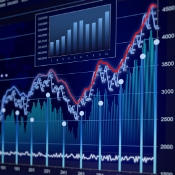
Was 2015 a turnaround year for the U.S. economy?
As predicted 12 months ago, the economy grew this year, as we continued to dig ourselves out of the recession. The unemployment rate decreased from 5.7 percent to 5.0 percent in October, the lowest rate since April 2008. But it is a long, slow haul, and the jobs reports were not all great news. Though the unemployment rate is expected to keep dipping through 2016, fewer new job additions in the fourth quarter reminded economists, business owners, and the Federal Reserve that we are not completely out of the woods yet.
The Federal Reserve kept interest rates low until the very end of the year, announcing its first rate increase since 2006 on December 16. The Federal Open Market Committee set the new target range for the federal funds rate at 0.25 percent to 0.50 percent, and Fed Chair Janet Yellen said the move would be followed by gradual tightening in 2016 as they continue to keep a close eye on inflation.
Everyone has an eye on China’s faltering economy. The Chinese stock market doubled in a year, thanks to a strong surge in stock buys. Everyone – including working- and middle-class families – bet heavily on the market, creating a massive bubble. Then, on July 9, the stock market crashed, falling nearly 8.5 percent in one day. The second largest economy in the world has affected foreign investors, and we will continue to feel the ripple effect of this massive sell-off into 2016.
But there were some bright notes in 2015, which helped the average American and small business owners. Oil prices stayed low throughout the year, taking pressure off of manufacturing and transportation costs. In 2016, oil prices are expected to keep dropping as the U.S. surplus increases; however, the still-unsettled Middle Eastern countries could affect prices in the future.
Finally, one issue that popped up in 2015 has many economists and businesspeople feeling leery —unicorns. These are companies—often tech startups like AirBnB, Uber, DropBox, Square, Spotify, and Zenefits — that are valued at more than $1 billion. These companies are successful, sure, but many investors are wary of their actual valuation, and concerned for what this may mean in the future.
Have these mythical unicorns created another bubble like the dot-com companies of the late 90s? Only time will tell. But the good news is, we are a stronger economy than we were just a few years ago.
Contact us at 215.441.4600 or Email if you have questions or would like to discuss how this topic may impact your business.
You may also like:


